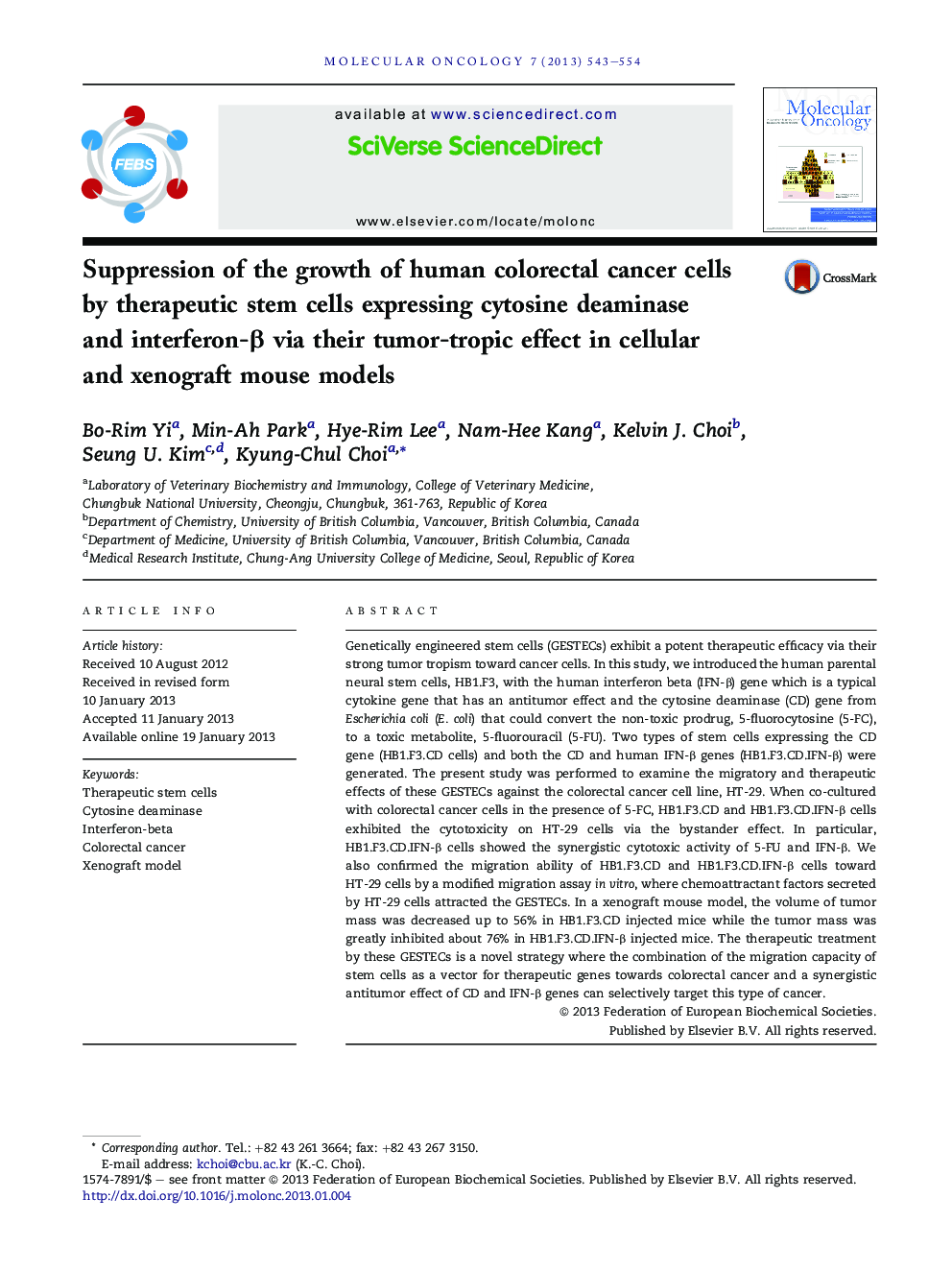| Article ID | Journal | Published Year | Pages | File Type |
|---|---|---|---|---|
| 2145722 | Molecular Oncology | 2013 | 12 Pages |
Genetically engineered stem cells (GESTECs) exhibit a potent therapeutic efficacy via their strong tumor tropism toward cancer cells. In this study, we introduced the human parental neural stem cells, HB1.F3, with the human interferon beta (IFN-β) gene which is a typical cytokine gene that has an antitumor effect and the cytosine deaminase (CD) gene from Escherichia coli (E. coli) that could convert the non-toxic prodrug, 5-fluorocytosine (5-FC), to a toxic metabolite, 5-fluorouracil (5-FU). Two types of stem cells expressing the CD gene (HB1.F3.CD cells) and both the CD and human IFN-β genes (HB1.F3.CD.IFN-β) were generated. The present study was performed to examine the migratory and therapeutic effects of these GESTECs against the colorectal cancer cell line, HT-29. When co-cultured with colorectal cancer cells in the presence of 5-FC, HB1.F3.CD and HB1.F3.CD.IFN-β cells exhibited the cytotoxicity on HT-29 cells via the bystander effect. In particular, HB1.F3.CD.IFN-β cells showed the synergistic cytotoxic activity of 5-FU and IFN-β. We also confirmed the migration ability of HB1.F3.CD and HB1.F3.CD.IFN-β cells toward HT-29 cells by a modified migration assay in vitro, where chemoattractant factors secreted by HT-29 cells attracted the GESTECs. In a xenograft mouse model, the volume of tumor mass was decreased up to 56% in HB1.F3.CD injected mice while the tumor mass was greatly inhibited about 76% in HB1.F3.CD.IFN-β injected mice. The therapeutic treatment by these GESTECs is a novel strategy where the combination of the migration capacity of stem cells as a vector for therapeutic genes towards colorectal cancer and a synergistic antitumor effect of CD and IFN-β genes can selectively target this type of cancer.
► Migratory effect of the stem cells was confirmed towards HT-29 colorectal cancer. ► Therapeutic effect of the stem cells was observed against HT-29 colorectal cancer. ► The volume of colorectal tumor mass was inhibited in xenografted mice. ► A remarkable synergistic antitumor effect of CD and IFN-b genes can selectively target this type of cancer.
